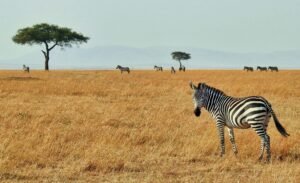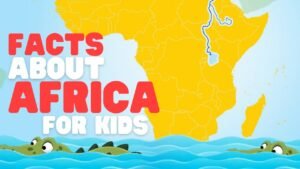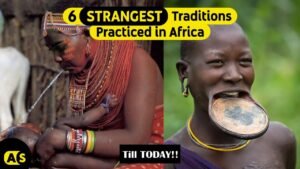Top Things to Know About Gabon – Resources, Wildlife, and Travel Tips
Top Things to Know About Gabon. Gabon, located on Africa’s west coast, is celebrated for its stunning natural landscapes, abundant resources, and relative political stability compared to its neighbors. With much of the country blanketed by dense rainforests, Gabon combines its economic potential through natural resources with a growing focus on sustainability and ecotourism.
Geography and Nature
Spanning approximately 267,000 square kilometers, Gabon borders Equatorial Guinea, Cameroon, and the Republic of Congo, with the Atlantic Ocean to the west.
Nature Highlights
1. Rainforests: Around 85% of Gabon is forested, making it one of the world’s largest carbon storage regions.
2. National Parks: Gabon boasts 13 national parks, including the famous Loango National Park, renowned for elephants, buffalo, and hippos on its beaches.
3. Biodiversity: Gabon is home to gorillas, chimpanzees, and numerous rare species, making it a hotspot for nature enthusiasts.

Economy and Resources
Gabon is one of Africa’s most resource-rich countries. Its economy largely depends on oil, timber, and mining, with oil exports being the primary source of revenue.
Key Economic Sectors
1. Oil Industry: Gabon is a leading oil producer in Africa, though revenues have fluctuated due to price volatility and declining production.
2. Mining: The country has significant deposits of manganese, gold, and iron ore.
3. Timber Exports: Gabon is a major exporter of tropical hardwood, with initiatives to ensure sustainable forestry practices.
Focus on Diversification
– Agriculture: Promoting cocoa production and other agricultural goods.
– Ecotourism: Expanding nature-based tourism to protect biodiversity while boosting the economy.

Society and Culture
With a population of around 2.3 million (as of 2023), Gabon is one of Africa’s least densely populated countries.
Cultural Aspects
1. Ethnic Diversity: Gabon is home to various ethnic groups, including the Fang (the largest group), Myene, and Nzebi peoples.
2. Language: French is the official language, with many indigenous languages also spoken.
3. Religion: Christianity is the dominant religion, often blended with traditional beliefs.
Politics and International Relations
Since gaining independence from France in 1960, Gabon has been relatively politically stable, though corruption and governance challenges persist.
Government
Gabon is a presidential republic, with the president holding significant power. The political landscape has long been dominated by the Bongo family.
Global Partnerships
– Gabon maintains strong ties with France, particularly in economic matters.
– It is a member of the African Union (AU), Economic Community of Central African States (ECCAS), and OPEC.
Tourism: An Emerging Sector
Gabon’s national parks, coastal regions, and unique wildlife experiences are attracting a growing number of visitors.
Top Destinations
1. Loango National Park: Famous for beachside elephants and hippos, as well as whale watching.
2. Lopé National Park: A UNESCO World Heritage Site with a mix of rainforest and savanna.
3. Libreville: The capital city offers museums, markets, and beaches.

Challenges and Opportunities
Challenges
1. Economic Dependence on Oil: Diversification is crucial to mitigate global market fluctuations.
2. Inequality: Despite high revenues from resources, poverty remains an issue for parts of the population.
Opportunities
1. Sustainable Development: Gabon has emerged as a leader in climate action, protecting vast areas of its forests.
2. Tourism Growth: With its rich natural assets, Gabon has the potential to become a top ecotourism destination.
FAQs About Gabon
Here are some frequently asked questions about Gabon, covering its geography, economy, culture, and travel tips:
1. Where is Gabon located?
Gabon is located on the west coast of Central Africa. It borders Equatorial Guinea, Cameroon, and the Republic of Congo, with the Atlantic Ocean to the west.
2. What is Gabon known for?
Gabon is famous for its lush rainforests, diverse wildlife, and vast national parks, such as Loango National Park. It is also a major producer of oil and manganese, contributing significantly to its economy.
3. What language is spoken in Gabon?
The official language of Gabon is French. Additionally, several indigenous languages, such as Fang and Myene, are widely spoken across the country.
4. Is Gabon safe for tourists?
Gabon is considered relatively safe for tourists compared to other countries in the region. However, travelers should exercise standard precautions, especially in urban areas, and avoid political demonstrations.
5. What currency is used in Gabon?
Gabon uses the Central African CFA Franc (XAF), which is also shared by several other Central African countries.
6. What are Gabon’s main industries?
Gabon’s economy is driven by:
– Oil production: A leading export and revenue source.
– Mining: Rich in manganese, gold, and iron ore.
– Forestry: Known for its tropical hardwood exports.
– Ecotourism: An emerging sector due to Gabon’s unique natural attractions.
7. What wildlife can I see in Gabon?
Gabon is home to elephants, gorillas, chimpanzees, hippos, leopards, and a wide variety of bird species. Loango National Park is especially famous for elephants and hippos that roam the beaches.
8. When is the best time to visit Gabon?
The best time to visit Gabon is during the dry season, from June to September, when wildlife spotting is easier, and the roads are more accessible.
9. Do I need a visa to visit Gabon?
Most travelers require a visa to enter Gabon. Check with your local Gabonese embassy or consulate for up-to-date visa requirements. Some nationalities may qualify for an e-visa.
10. What are Gabon’s most famous attractions?
Some top attractions in Gabon include:
– Loango National Park: For wildlife on the beaches.
– Lopé National Park: A UNESCO World Heritage Site with rainforests and savannas.
– Pointe-Denis Beach: A relaxing coastal escape near Libreville.
– Libreville: The capital city, known for its museums, markets, and cultural landmarks.
11. What is Gabon’s climate like?
Gabon has an equatorial climate with high humidity and consistent temperatures year-round. The rainy season typically lasts from October to May, while the dry season is from June to September.
12. Is Gabon a developed country?
Gabon is classified as a middle-income country. Its natural resource wealth has contributed to relatively high GDP per capita compared to other African nations, but income inequality remains an issue.

Conclusion
Gabon is a land of opportunity, blending economic potential with breathtaking natural beauty. While challenges remain, its combination of resource wealth and a commitment to sustainable growth provides a solid foundation for progress. With its unique national parks and growing tourism sector, Gabon is a hidden gem in Africa, waiting to be explored.

